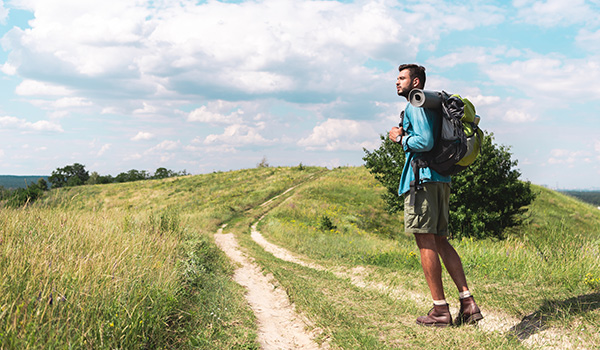
Limit the amount of news you watch
Excessive news checking can leave you anxious and emotionally fatigued. One of the ways to reduce stress is to disconnect and develop healthy news habits by turning off news app push notifications, seeking factual information from reliable sources, and setting specified times for monitoring the news (i.e. once in the morning and evening). Watch the news with others to talk about any concerns you may have and to keep worrying thoughts at bay. Another suggestion is to look for positive, upbeat tales and good news. Celebrating happy events can improve your happiness and well-being.
Workout
Physical activity is beneficial to your mental health, particularly if you are stressed. The World Health Organization (WHO) recommends 150 minutes of moderate-intensity physical activity or 75 minutes of vigorous-intensity physical activity per week — or a combination of both if you’re really determined. It only takes 15 minutes per day! WHO recommends the following fitness suggestions for exercising at home:
- Take short active breaks throughout the day: from housework to playing with your kids, short bursts of physical activity will keep you occupied.
- Take an online workout class: the internet has made it possible to access a vast array of online exercise courses, many of which are free and can be found on YouTube.
- Walking is a simple strategy that is yet useful. Even if you’re at home, strolling around will keep you active. If you get a call, for example, instead of sitting down, standing, or walking around.
To cut down on inactive time, the WHO suggests standing up every 30 minutes. Consider setting up a standing desk if you work from home. Follow cognitively engaging hobbies during free time, such as reading, board games, or puzzles.
Relaxation techniques such as meditation and breathing exercises might help you cope with stress more effectively.
Spend time in the outdoors
Spend time in nature because it has been demonstrated in multiple studies to have a favorable influence on mental health. Simply engaging with nature for 20 minutes can help reduce stress hormone levels. After work, consider going for a walk in the park. Spending time in nature can also help you feel better physically by lowering your blood pressure, heart rate, muscular tension, and stress chemicals -it’s one of the easy ways to reduce stress.
Take the Scandinavians, for example, who have a cultural heritage of “open-air life”: despite the cold, people dress appropriately and go outside because they recognize the benefits to mental health. Although the prospect may be intimidating, once outside, it feels better than you anticipated.
With the impending winter months, adding green components (i.e. plants and flowers) to your space could be an alternative — merely having a plant on your work desk can alleviate tension and anxiety and benefit your mental health in the long run.
Concentrate on the short-term
It’s difficult not to be concerned about political issues, but a study led by Neupert and published in the journal Personality and Individual Differences indicated that thinking in the short term is a more effective method to cope with stress.
“The greatest recipe for dealing with everyday pressures, according to my lab’s research, is to try to plan ahead for what you can control while staying in the moment mindfully,” she says. “This entails observing what is happening in the present without attempting to change it. “We discovered that this was the optimal combination for stress resilience.”
She believes that these discoveries are particularly pertinent right now. Mindfulness—defined as remaining focused on the present moment—has long been known to help people cope with stress, and there are techniques you can use to improve your mindfulness skills, such as yoga (search “yoga for anxiety” or “restorative yoga” online, and if you’re new to yoga, here’s how to get started) and meditation (the UCLA Mindful Awareness Research Center provides free online guided meditations).
Experts believe that making and sticking to a weekly or daily plan might also assist by providing you with a better sense of control. Paula A. Madrid, Psy.D., a clinical and forensic psychologist in New York City, suggests making a daily calendar of small, reasonable things to complete, such as calling a friend, trying a new recipe, or working in the yard. Shower and dress if you’re working from home, advises UC Irvine’s Garfin.
Look Forward to a Brighter Future
Although it may seem as if we’ve spent an eternity socially isolating ourselves, Madrid points out that the pandemic will finally cease. While there’s no way of knowing what aspects of your life will alter in the long run, it’s good to use your imagination in a constructive way.
“Project your imagination to the future, a year or even a few months from now,” Madrid advises, “to give you a sense of respite from the present.”
Planning a future winter vacation or finalizing the preparations for your next milestone anniversary party can serve as a reminder that there are fun things to look forward to in the future.
Working on hobbies or abilities that you can use after the epidemic, such as learning a language, enrolling in an online knitting class, or remodeling your home, is another way to reduce stress, according to Corsica: “Tasks that distract you in the here and now but benefit you in the future are excellent.”

